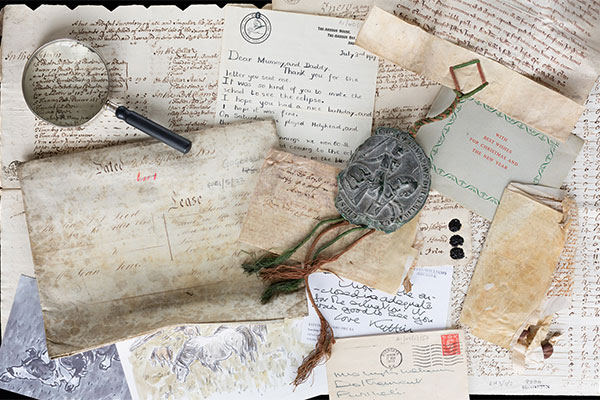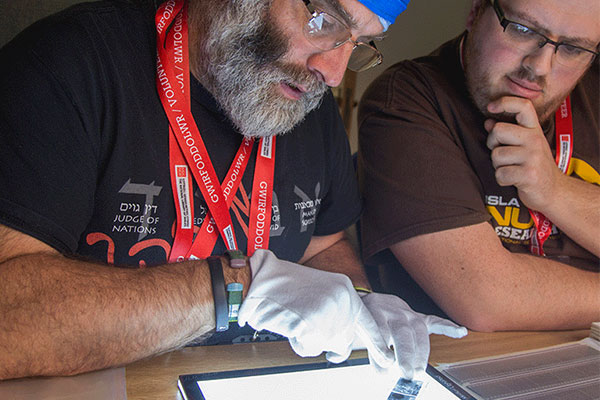Peniarth MS 109
This is a long and narrow volume, bound in leather. It contains 96 sheets in 13 folds, with one fold possibly missing. The recent pagination (1-192) was noted by J. Gwenogfryn Evans. The current binding dates from the 17th century when it was part of the famous Hengwrt library, in Merionethshire (when it was known as Hengwrt MS 52). In 1859 it was transferred with the rest of the collection to the Peniarth library, and in 1904 the whole collection was purchased by Sir John Williams for the National Library.




